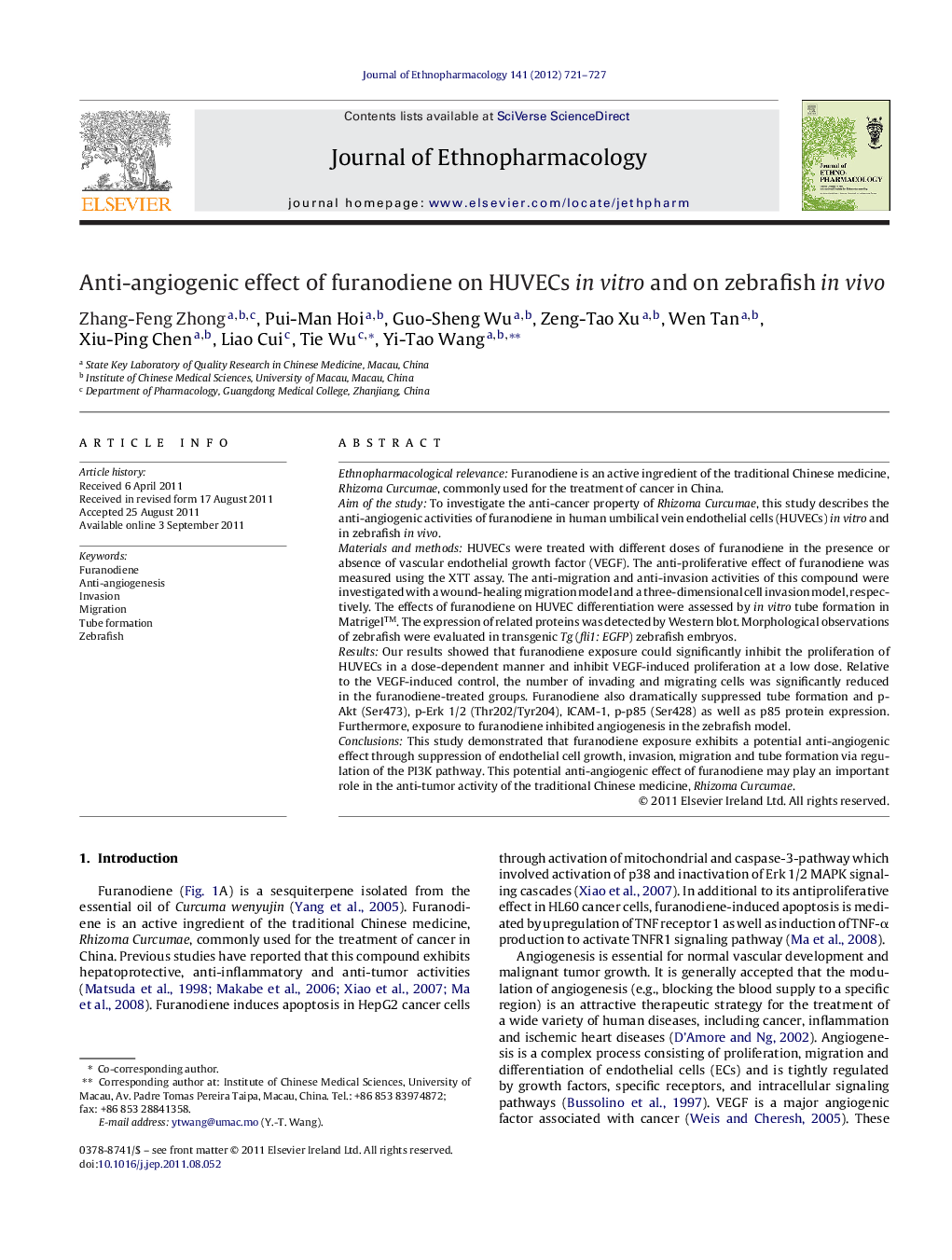| کد مقاله | کد نشریه | سال انتشار | مقاله انگلیسی | نسخه تمام متن |
|---|---|---|---|---|
| 2545611 | 1123969 | 2012 | 7 صفحه PDF | دانلود رایگان |

Ethnopharmacological relevanceFuranodiene is an active ingredient of the traditional Chinese medicine, Rhizoma Curcumae, commonly used for the treatment of cancer in China.Aim of the studyTo investigate the anti-cancer property of Rhizoma Curcumae, this study describes the anti-angiogenic activities of furanodiene in human umbilical vein endothelial cells (HUVECs) in vitro and in zebrafish in vivo.Materials and methodsHUVECs were treated with different doses of furanodiene in the presence or absence of vascular endothelial growth factor (VEGF). The anti-proliferative effect of furanodiene was measured using the XTT assay. The anti-migration and anti-invasion activities of this compound were investigated with a wound-healing migration model and a three-dimensional cell invasion model, respectively. The effects of furanodiene on HUVEC differentiation were assessed by in vitro tube formation in Matrigel™. The expression of related proteins was detected by Western blot. Morphological observations of zebrafish were evaluated in transgenic Tg (fli1: EGFP) zebrafish embryos.ResultsOur results showed that furanodiene exposure could significantly inhibit the proliferation of HUVECs in a dose-dependent manner and inhibit VEGF-induced proliferation at a low dose. Relative to the VEGF-induced control, the number of invading and migrating cells was significantly reduced in the furanodiene-treated groups. Furanodiene also dramatically suppressed tube formation and p-Akt (Ser473), p-Erk 1/2 (Thr202/Tyr204), ICAM-1, p-p85 (Ser428) as well as p85 protein expression. Furthermore, exposure to furanodiene inhibited angiogenesis in the zebrafish model.ConclusionsThis study demonstrated that furanodiene exposure exhibits a potential anti-angiogenic effect through suppression of endothelial cell growth, invasion, migration and tube formation via regulation of the PI3K pathway. This potential anti-angiogenic effect of furanodiene may play an important role in the anti-tumor activity of the traditional Chinese medicine, Rhizoma Curcumae.
Figure optionsDownload high-quality image (106 K)Download as PowerPoint slide
Journal: Journal of Ethnopharmacology - Volume 141, Issue 2, 1 June 2012, Pages 721–727